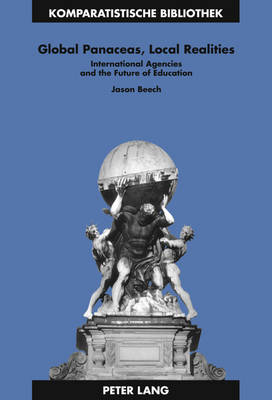Komparatistische Bibliothek / Comparative Studies Series / Bibliotheque d'Etudes Comparatives
1 primary work
Book 22
By analysing the proposals for teacher education drawn up by UNESCO, the World Bank and OECD, this book shows that even though each of these organizations has different views about education, their proposals are based on a similar set of assumptions about the future, and about how educational systems should be reformed to adapt to this future. In order to explore the effects of these proposals in different contexts, the book examines the educational reforms implemented in Argentina and Brazil in the 1990s, revealing how the discourse of international agencies was transformed as it met with local assumptions about what constitutes good education for teachers. The findings of this research are discussed within a broader theoretical model which makes it possible, thus, to map the circulation of discourse in the global educational field.
